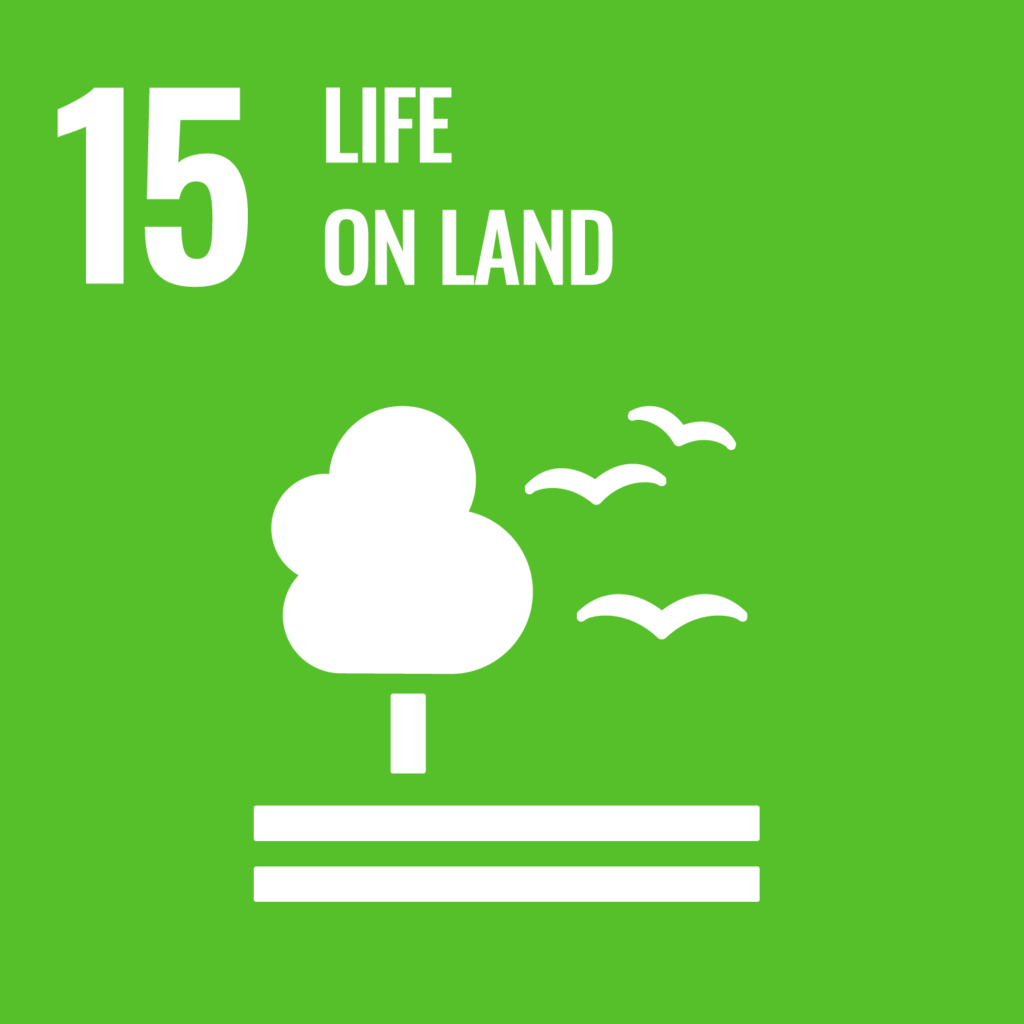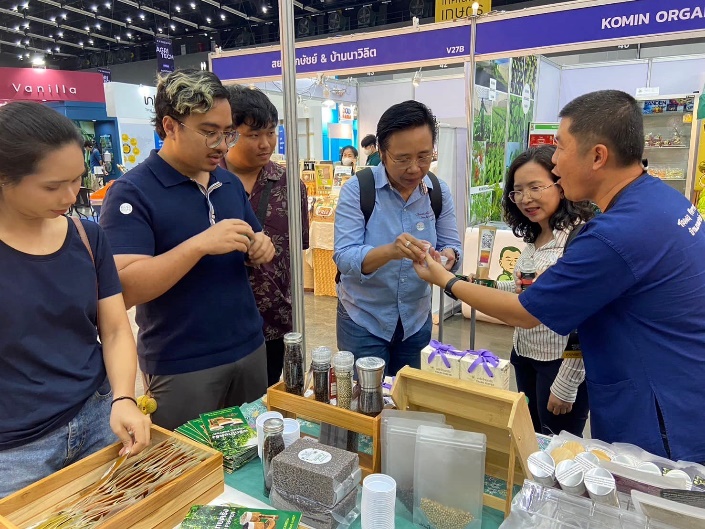Reporters: Asst.Prof.Dr. Prapot Maliwan
Assoc.Prof.Dr. Pornsil Seephueak
Asst.Prof.Dr. Nion Chirapongsathonkul
Asst.Prof.Dr. Worawitoo Meesook
Evidence Date: during 2024 Jan-Dec
Related SDGs:
Related Indicators: 15.2.2
Details:
Researchers Nuannoppamon Sriuthai, Asst. Prof. Dr. Chanadol Supapong, Asst. Prof. Somkid Chaipeth, and Asst. Prof. Dr. Praphot Maliwan from the Faculty of Agriculture, Rajamangala University of Technology Srivijaya (RUTS) have conducted a research project titled “Development of Pellet Total Mixed Ration (PTMR) Feeding Patterns on Growth and Feed Efficiency of Weaning Calves.” The study was supported by the Fundamental Fund 2024, under the Ministry of Higher Education, Science, Research and Innovation (MHESI). The research aimed to evaluate the effects of PTMR feeding on growth performance, feed efficiency, and production costs in pre-weaning Holstein–Friesian crossbred calves. PTMR is designed as a complete and balanced feed formula that combines multiple ingredients in pellet form to optimize nutrition and minimize feed waste. By using PTMR, the researchers aimed to improve the consistency of nutrient intake and overall animal health during the early growth stage. The experiment compared four types of diets: concentrate, pellet concentrate, total mixed ration (TMR), and pellet total mixed ration (PTMR). Results revealed that PTMR-fed calves showed stable feed intake, high digestibility, and balanced nutrient utilization compared to other treatments. Additionally, feed selection was minimized, ensuring all nutrients were consumed evenly. Although the cost of PTMR was slightly higher than conventional TMR, it proved more economical than pellet concentrate, making it an effective and cost-efficient solution for sustainable calf feeding.
The research also explored the potential of PTMR to reduce feed wastage and improve nutrient absorption, both of which are essential for efficient livestock production. Controlled trials monitored calf growth rates, blood biochemical indicators, and nutrient digestibility to evaluate overall health performance. The results demonstrated no significant differences in digestibility of dry matter, protein, or energy among treatments, indicating that PTMR maintained nutritional balance while supporting efficient feeding practices. Furthermore, the research provided valuable insight into sustainable livestock management and environmental responsibility by promoting feed systems that minimize resource waste. The project not only contributes to academic knowledge but also provides practical solutions for farmers seeking cost-effective feeding systems. These findings will serve as a reference for future innovations in dairy nutrition and animal welfare. The success of the research strengthens the reputation of RUTS in advancing agricultural sciences through applied research. Ultimately, the PTMR model aligns with national goals for sustainable agriculture and food security.
Following the research, the project team extended their impact through a Training Workshop on “Dairy Food Production from Local Ingredients for Improved Milk Quality” on 4 July 2024. The workshop aimed to transfer the research outcomes to livestock farmers and agricultural entrepreneurs in local communities. Participants learned how to utilize locally available raw materials to formulate balanced dairy feed and enhance milk quality. The researchers demonstrated practical techniques for producing PTMR-based dairy feed, feed preservation, and on-farm feed management. The training also emphasized the importance of nutrition in animal health, milk composition, and production efficiency. Farmers gained both theoretical and hands-on experience, empowering them to apply scientific knowledge in their daily farming practices. This outreach activity built a strong bridge between the university and the agricultural community, promoting sustainable livestock systems in southern Thailand. By integrating research with real-world application, the project successfully combined academic innovation with community development. Through these efforts, RUTS continues to foster sustainable agriculture that benefits both farmers and the environment.
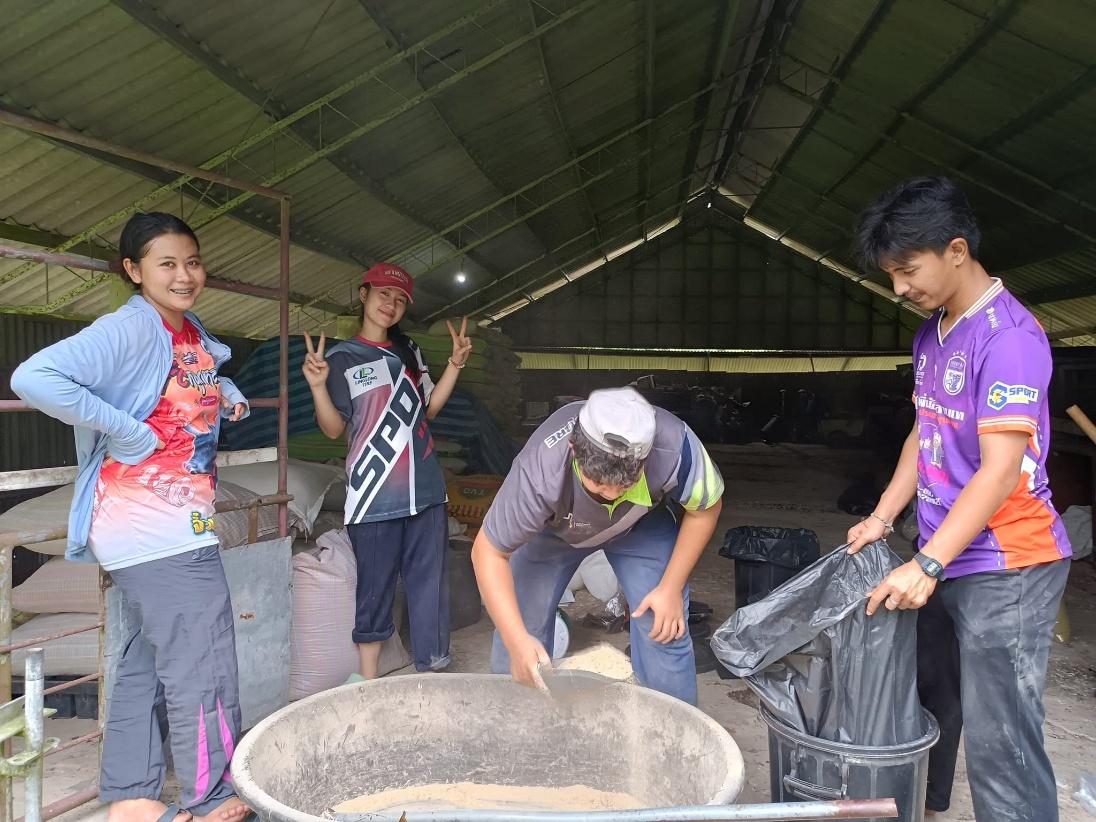
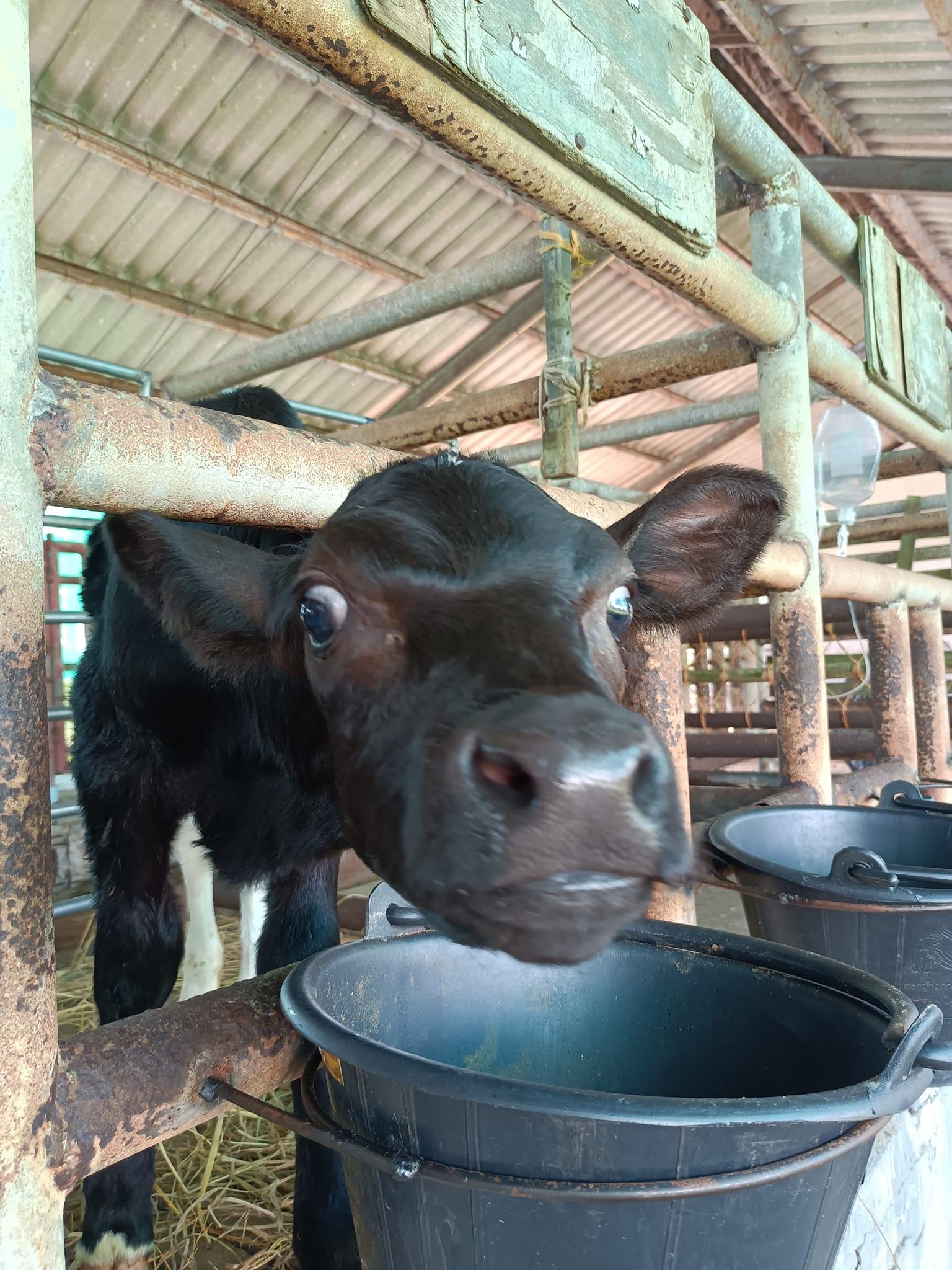
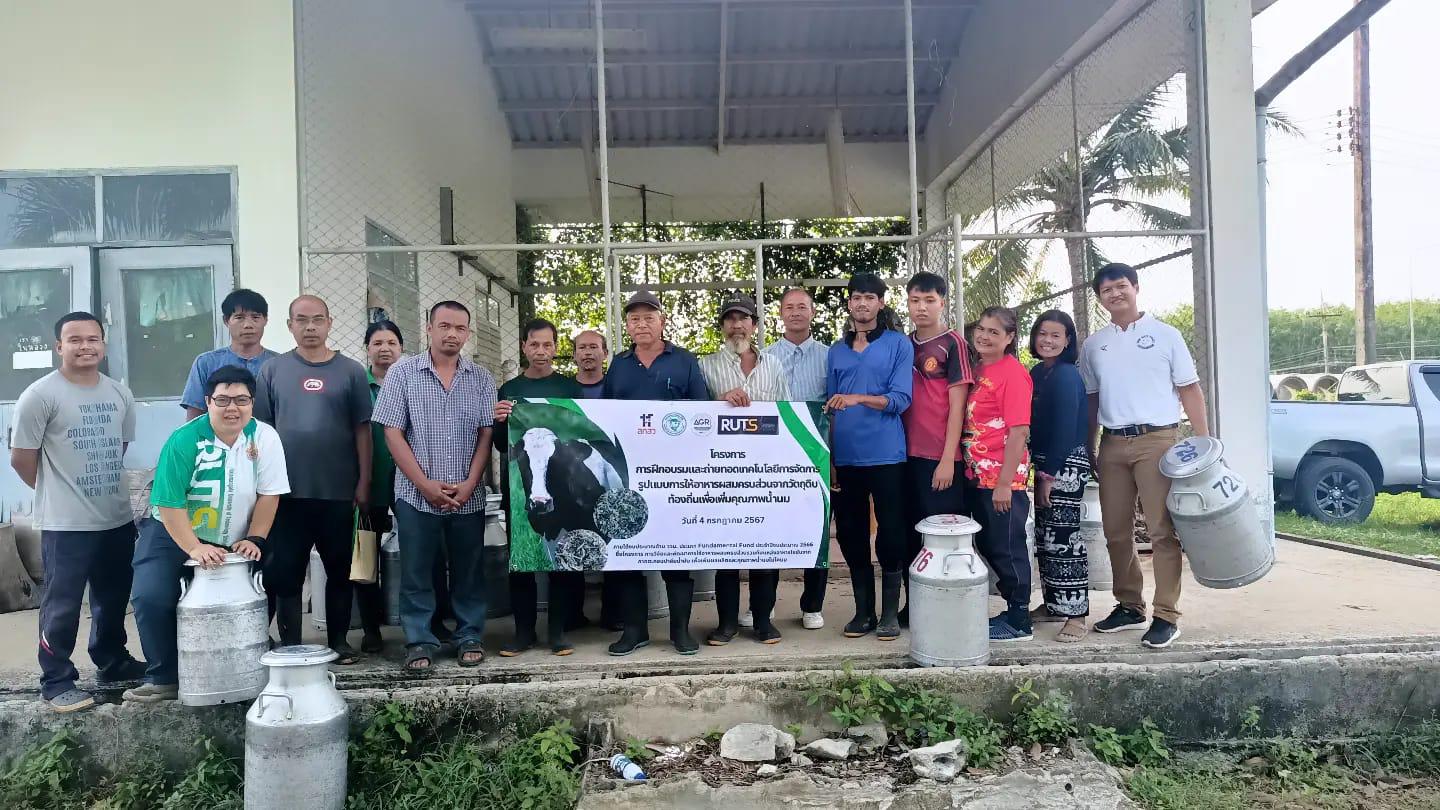
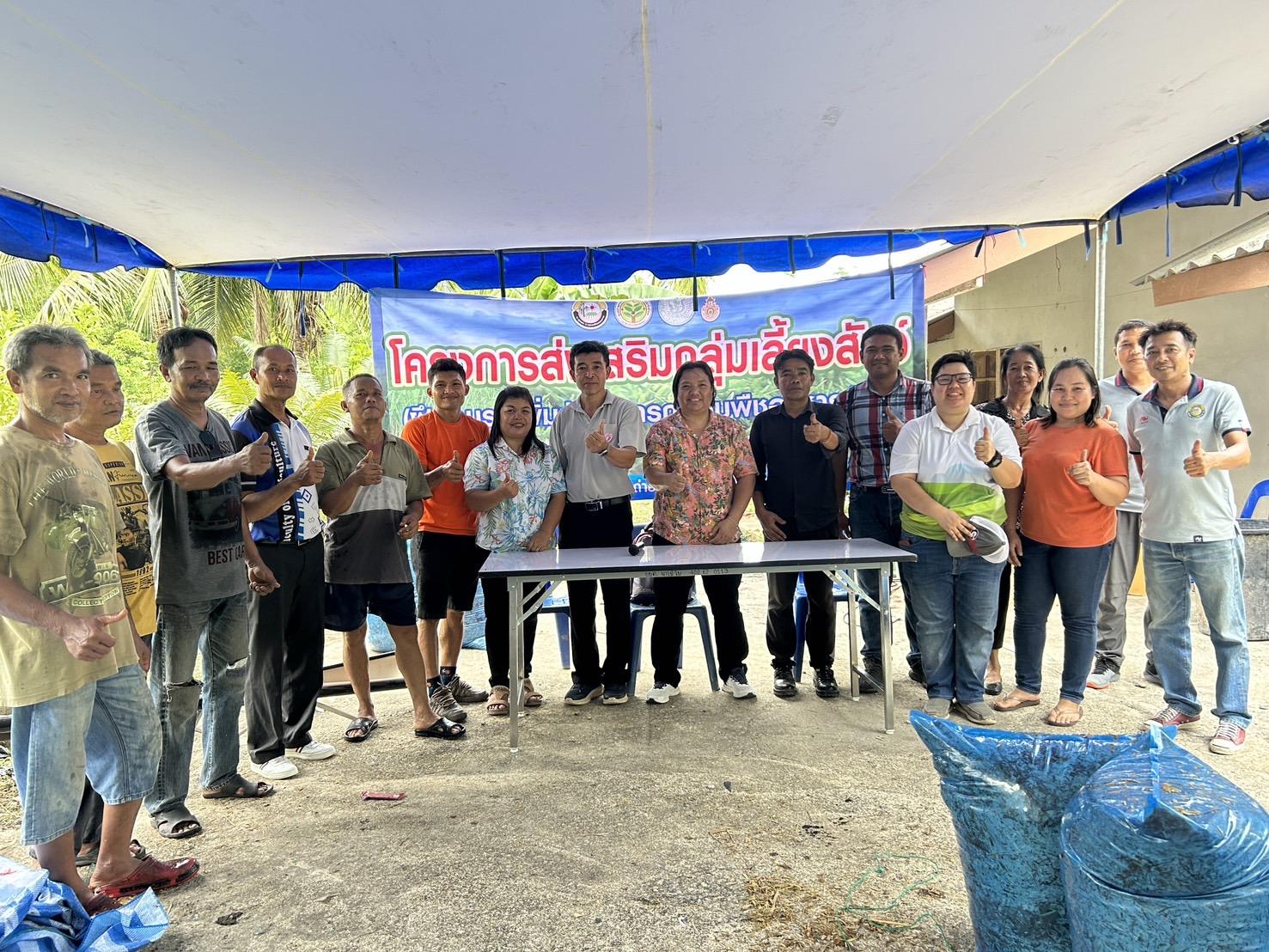
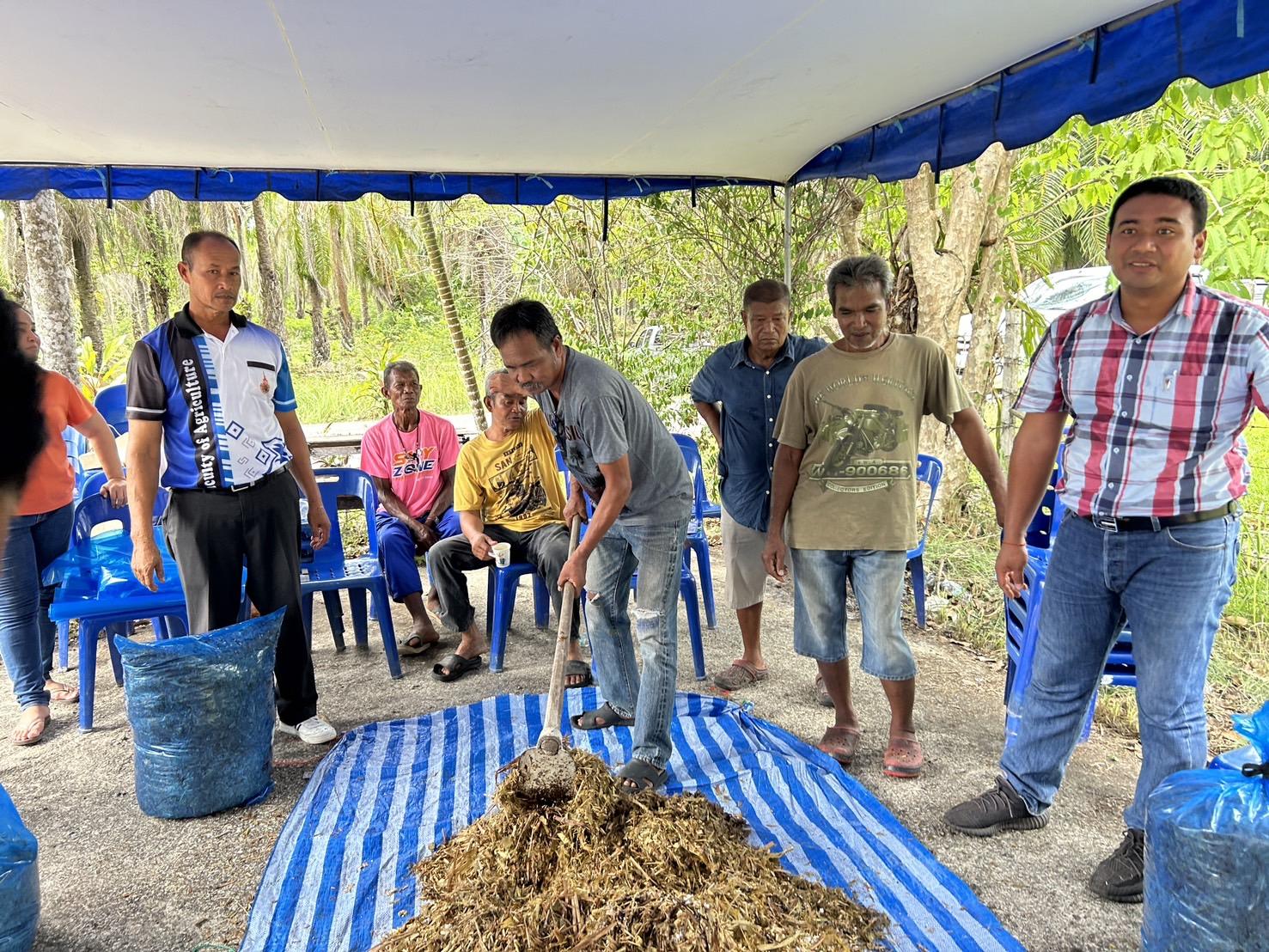
Related Links:

